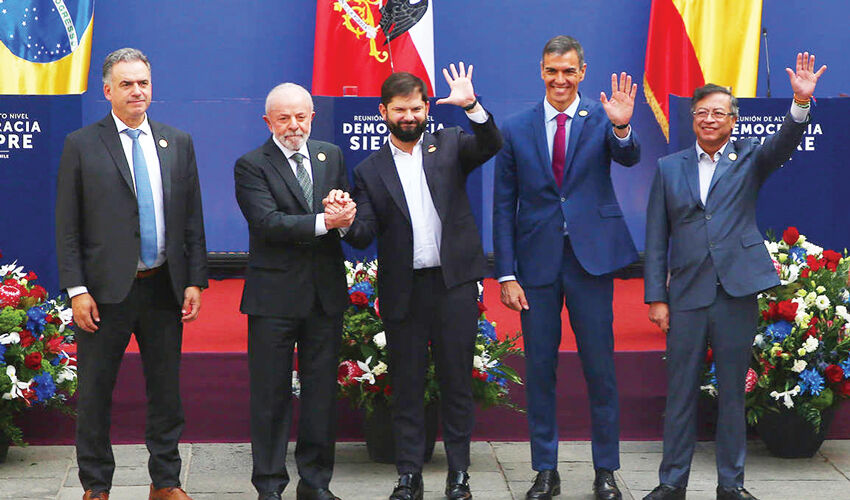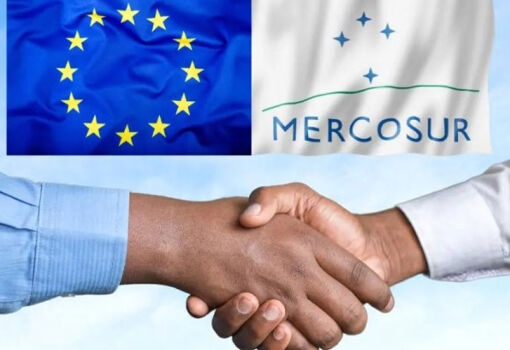
The group, calledDemocracia Siempre(Democracy Forever), has grown tremendously since its first meeting a year ago. The group’s expansion is due to the realization among its members that there is an increasing backlash against democracy around the world. This is especially true for one country that often claims to be the oldest and strongest democracy in the world. We are talking about the United States, where Donald Trump launched an attack on constitutional order when he returned to the White House in January.
Both domestically and internationally, the rule of law is being flouted, leading to rampant corruption, violations of basic human rights and due process, and the systematic erosion of institutions. Long-standing mechanisms for protecting freedoms and well-being are being dismantled before our eyes: academic freedom is under attack, as well as freedoms of the press and many other freedoms.
In these dark times, Democracia Siempre has become a ray of hope. Its members remain resolute in their defense of democracy and the rule of law, setting an example for those timid who have chickened out in the face of the intimidating Trump. They have made it clear: national sovereignty and democracy are not something to be traded. They refuse to go the way of Esau, who sold his birthright for lentil soup.
Democracy and the rule of law provide the main barrier to abuses of power and the foundation for the protection of human rights. History illustrates what happens when they are abandoned or destroyed.
The UN itself was created to help guarantee peace on our planet after World War II. We all share a common world, so peaceful life, stability and shared prosperity require a world body, international law and multilateral cooperation.
This summer, as the second global meeting of the Democracia Siempre group was being prepared, 43 Nobel Prize winners from a wide range of disciplines signed a letter of support for both the initiative and a plan to achieve its goals. This plan includes strengthening institutions, fighting income inequality, and combating online misinformation. Importantly, the signatories of the letter affirmed their commitment to reason. Their worldviews may differ, but they all agree that facts cannot be falsified. They all know that it was their commitment to Enlightenment principles that led them to Nobel Prize-winning discoveries.
Our judgments about the world must be based on facts, and facts provide scientific research and objective news gathering. Quality information and journalism are needed to inform society, promote constructive civic action, and preserve democracy. Freedom of speech is an internationally recognized human right. Like academic freedom, it plays an indispensable role in guaranteeing government accountability and preventing the concentration of power that undermines democracy.
In many countries, the actions of governments today have a negative impact on these freedoms. People in power use libel suits and other means to silence journalists, while large techno-companies allow misinformation to spread on their platforms, polluting the information ecosystem. Generative artificial intelligence (AI) threatens to make matters worse. Those who train AI models are stealing information created by traditional media and everyone else. As a result, they have little incentive to produce quality information. Technologies that could improve the dissemination and processing of information, on the contrary, could exacerbate the degradation of our information ecosystem (which is why Democracia Siempre focuses on this issue).
The most important property of democracy is the fact that everyone’s voice matters. One person is one vote. But all this becomes impossible when a few billionaires control the newly emerging global forum.
The system of checks and balances inevitably breaks down in the face of gross economic inequality, because it is accompanied by growing political inequality as oligarchs channel resources to change the rules in their favor.
Fighting inequality is also important for another reason: for democracy to function properly, society needs to show at least a modicum of solidarity. But today, extreme inequality, combined with a hyper-polarizing media ecosystem, has destroyed social cohesion.
For too long, many of us have taken democracy and human rights as a given. Today we know this is not the case. Preserving and improving democratic institutions requires constant effort. The Democracia Siempre movement offers hope that such efforts are still possible.
Joseph Stiglitz,
Nobel Prize-winning economist, former Chief Economist of the
of the World Bank, former chairman of the U.S. President’s Council of Economic Advisers
former chief economist of the World Bank, former chairman of the President’s Council of Economic Advisers, professor at Columbia University,
author of The Road to Freedom: Economic Science and the Good Society.
( W. W. Norton & Company and Allen LanePublishers , 2024).
© Project Syndicate, 2025.
www.project-syndicate.org



